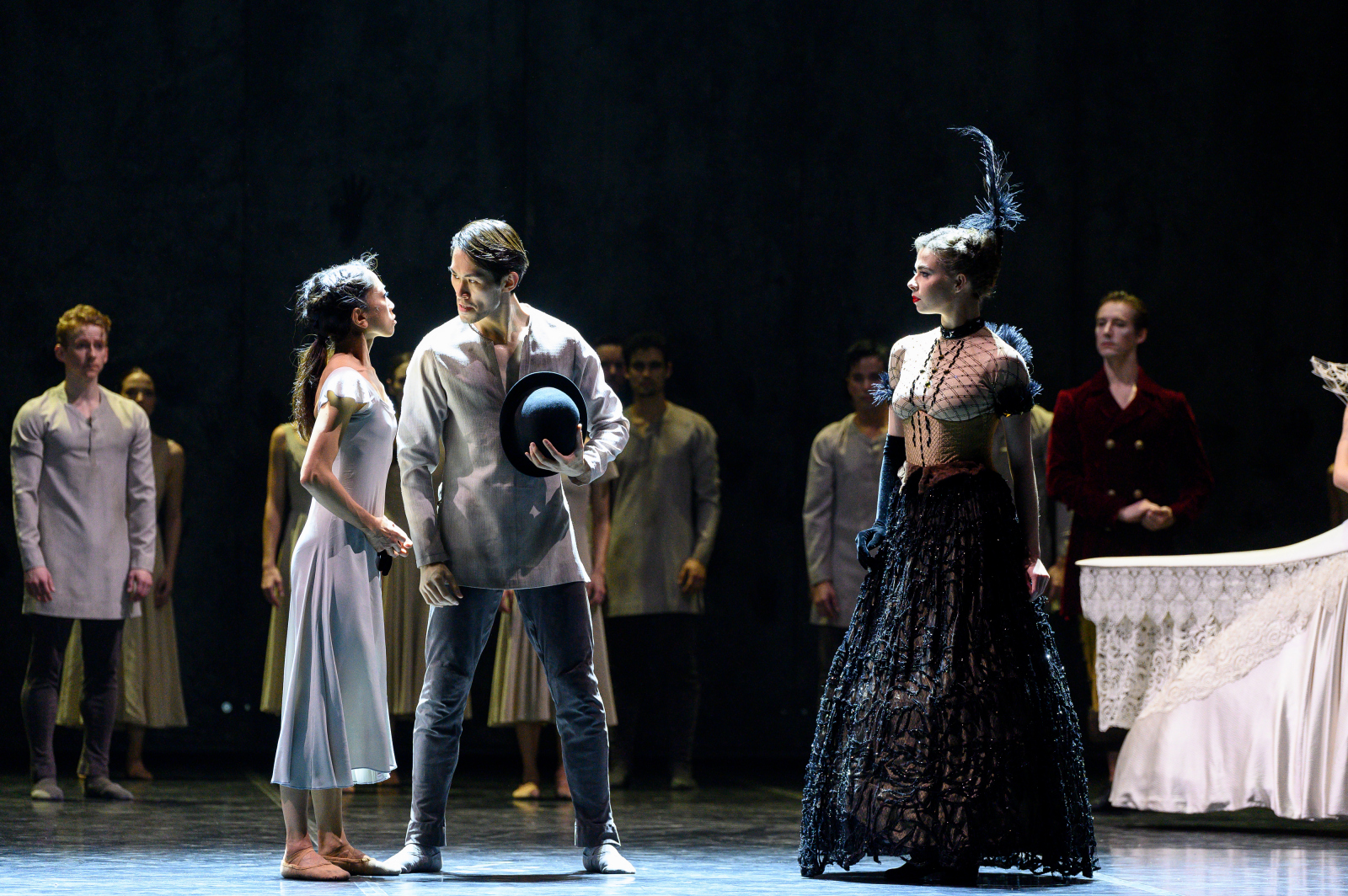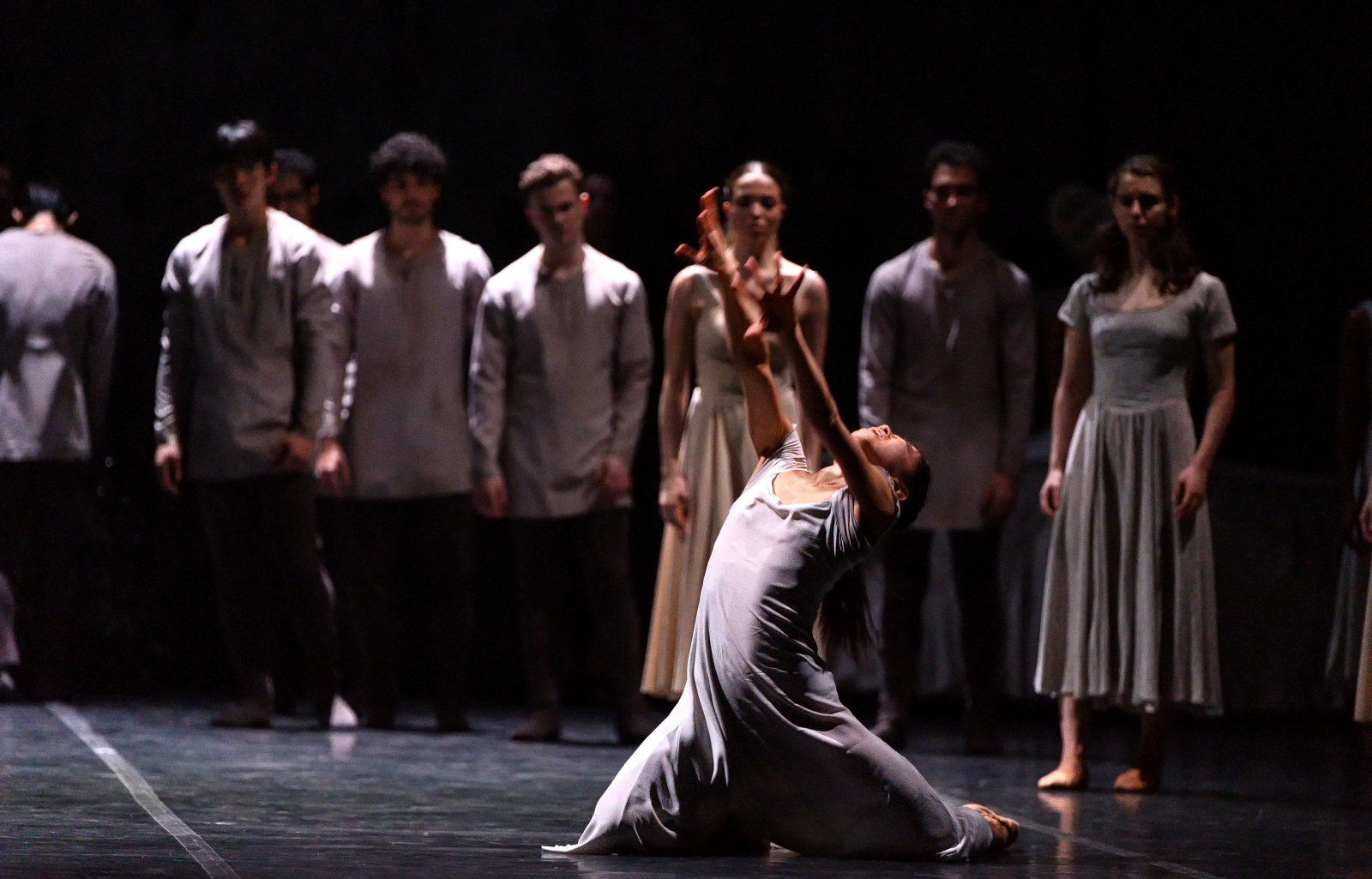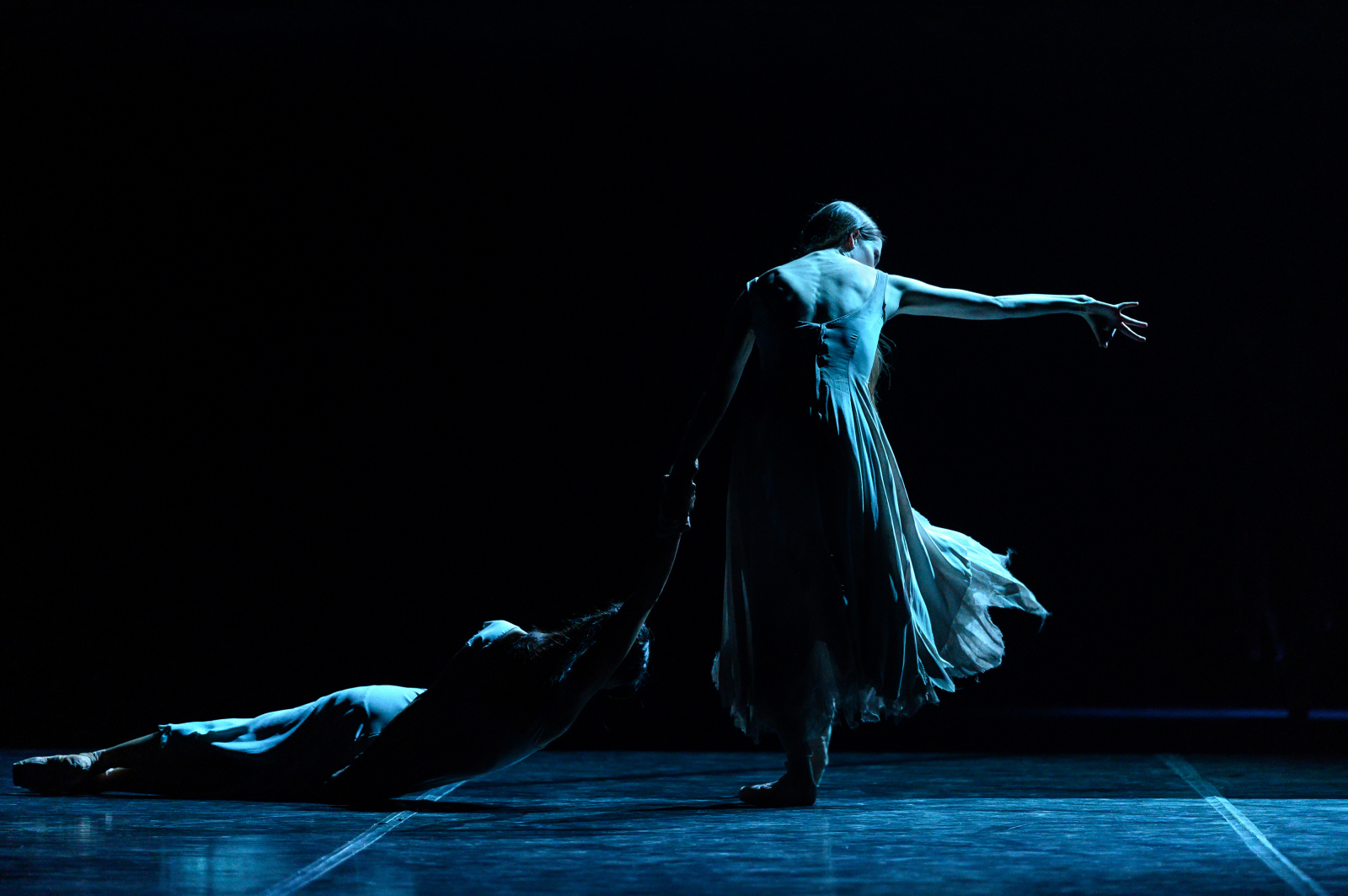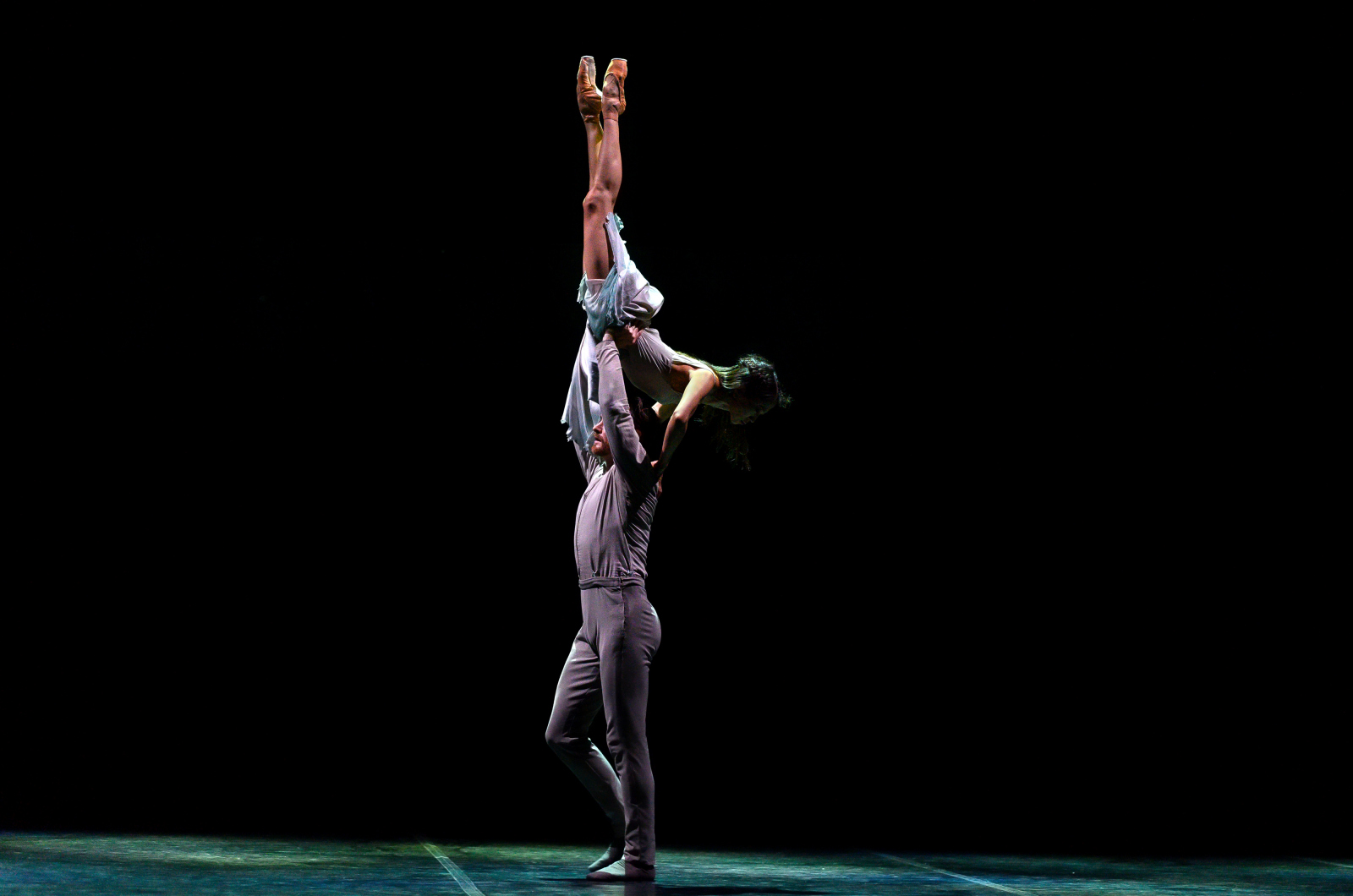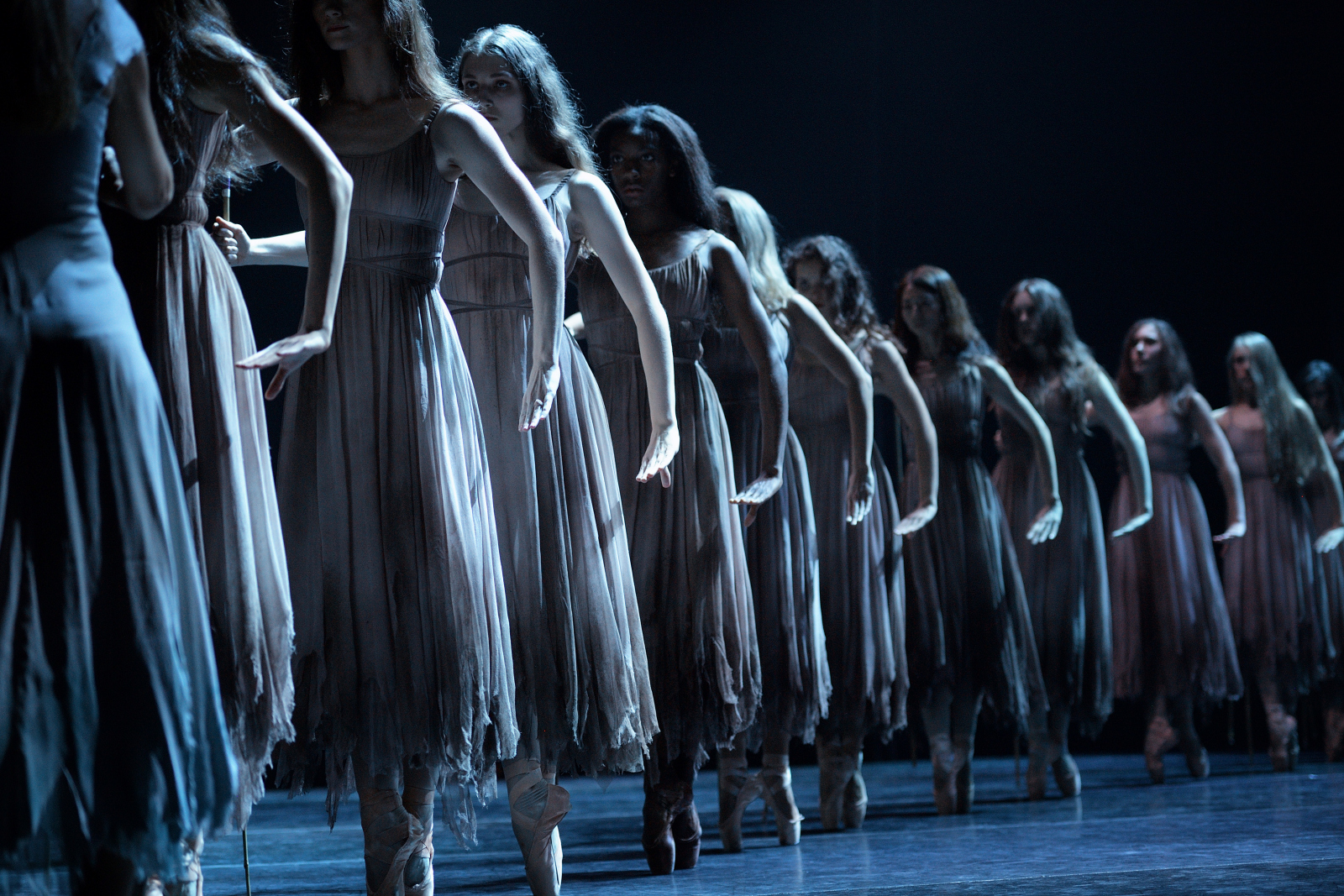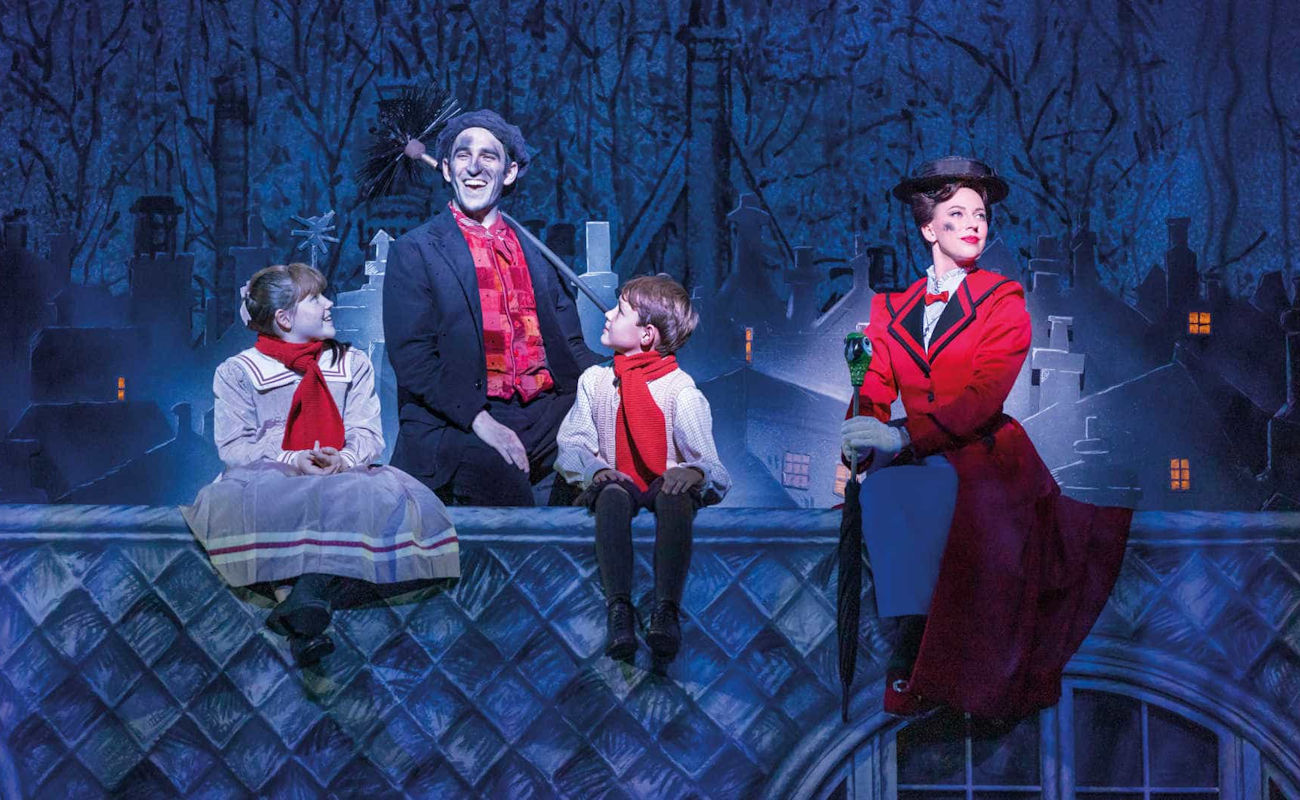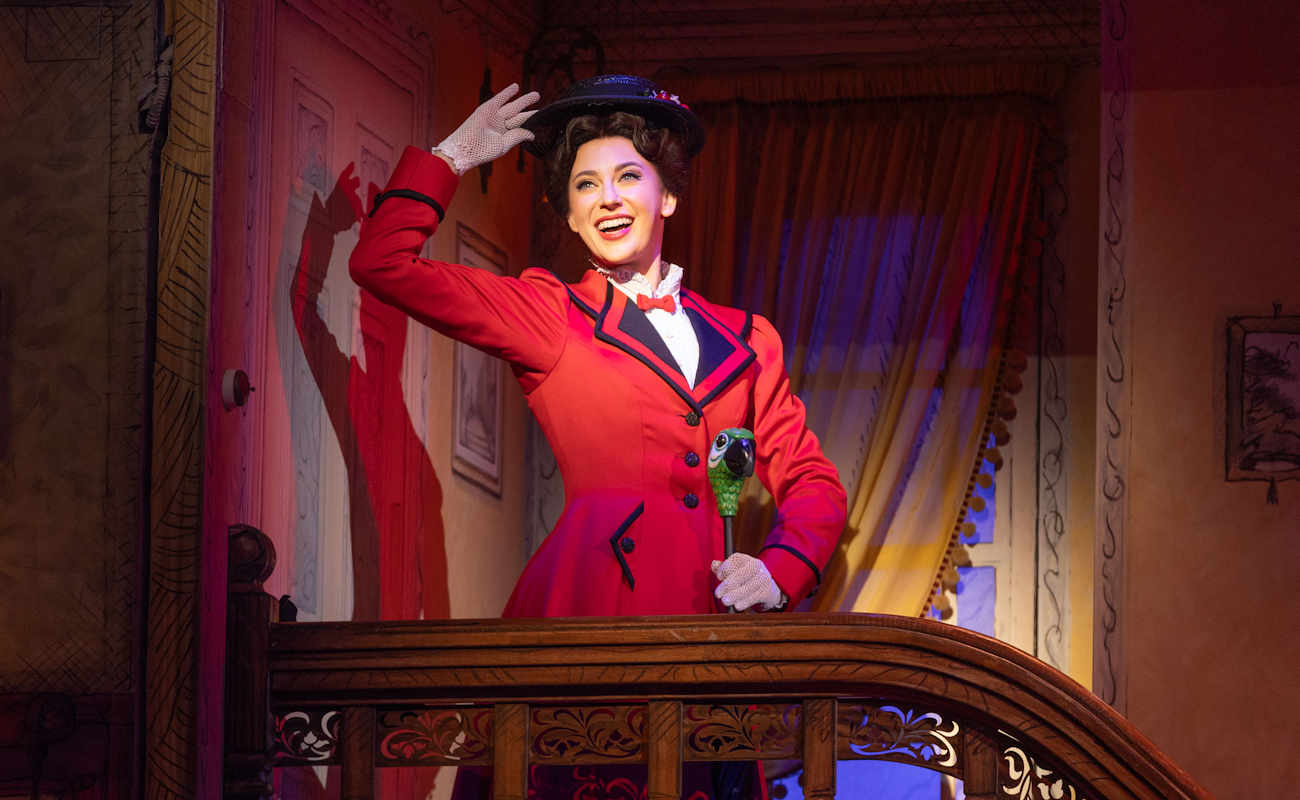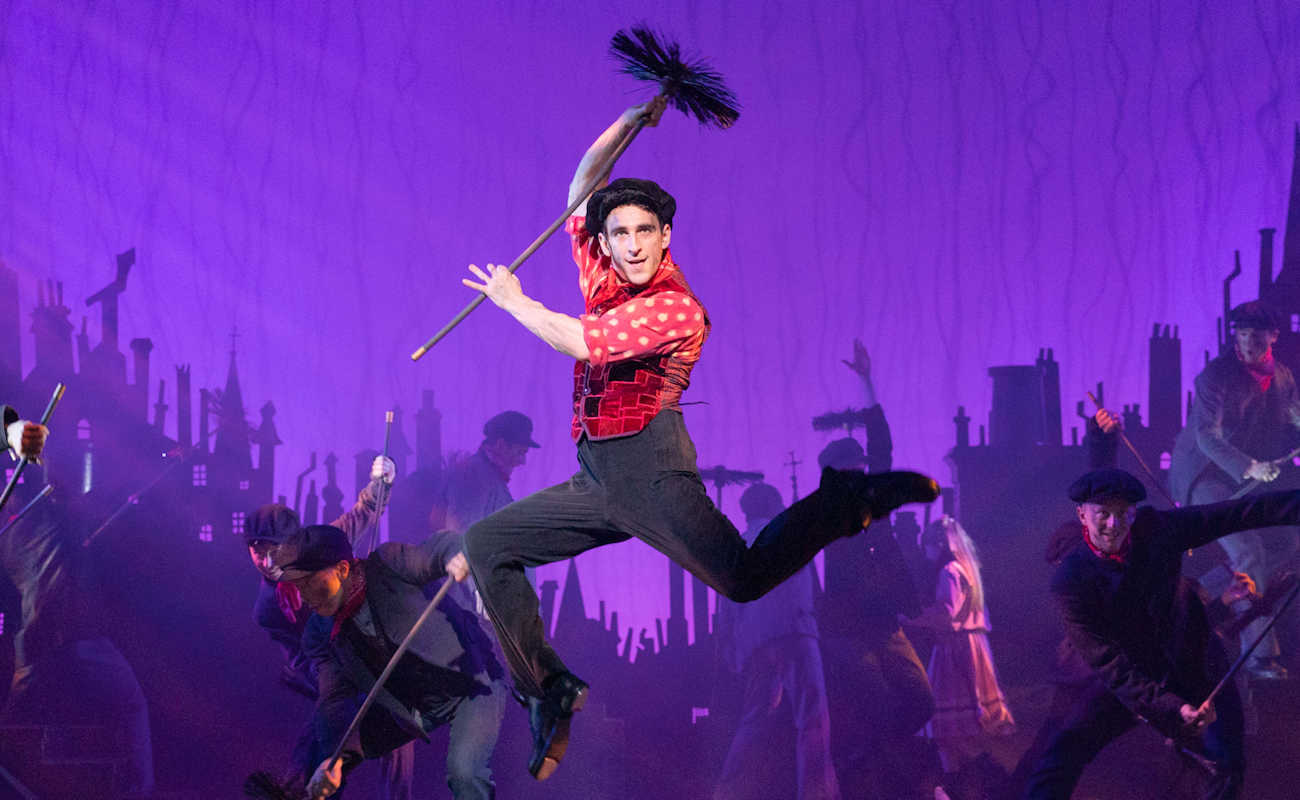Manchester Theatre News & Reviews
REVIEW - English National Ballet - Akram Khan’s Giselle is utterly captivating, energetic and emotionally charged!
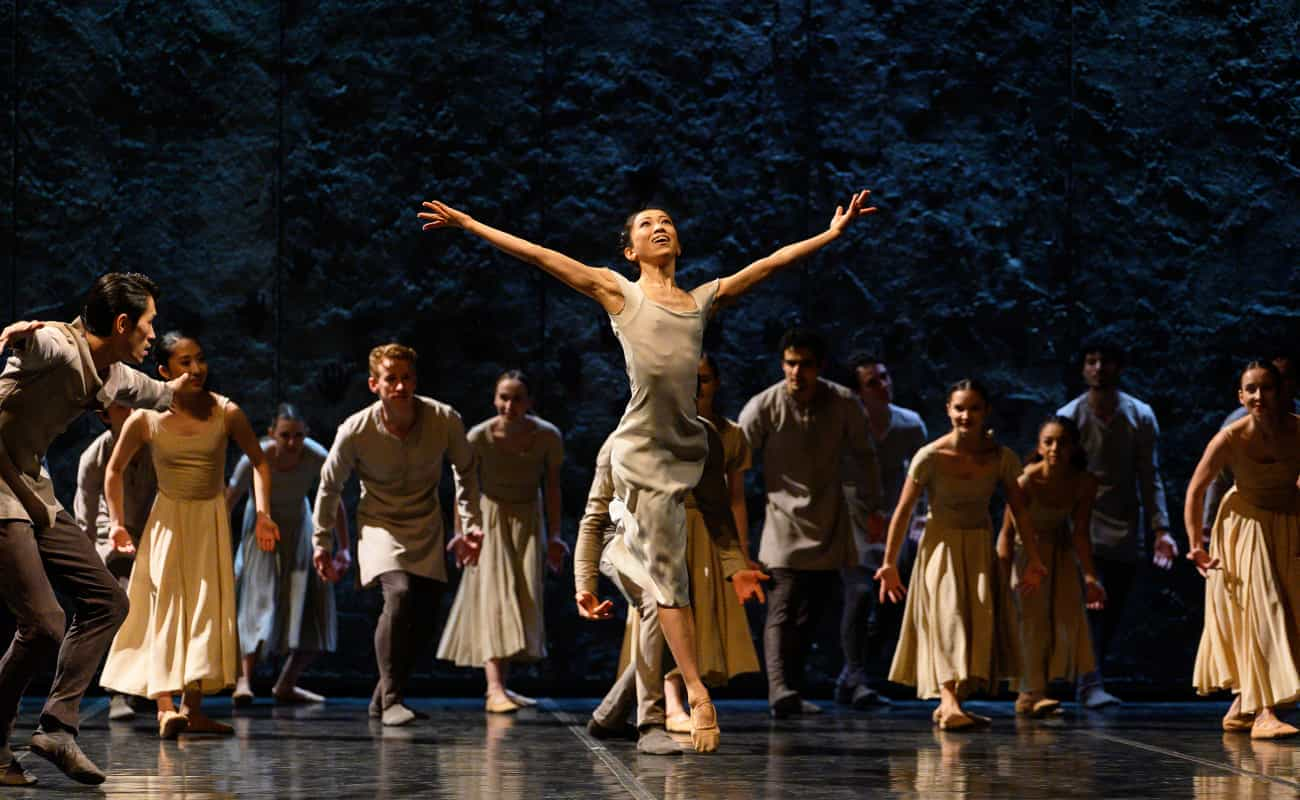 BOOK YOUR TICKETS HERE!
BOOK YOUR TICKETS HERE!
On Thursday, we were invited to the Palace Theatre in Manchester to watch English National Ballet's Giselle. Read what our reviewer Leanne Parker had to say about this wonderful production...
Akram Khan’s ‘Giselle’ is utterly captivating, extraordinary even, but probably not for the reasons you’d expect from a production of this classic and timeless dance performance! I’m pretty much a novice when it comes to Ballet and confess, I have only ever seen one traditional performance of another classic, ‘Swan Lake’, about 10 years ago. So, I wasn’t sure what to expect as my equally novice plus-one and I sat down this evening. I can assure you that what we got was beyond anything I could have anticipated. Billed as one of the greatest romantic ballets of all time, I, like most people, was loosely aware of the two-stage plot. In the first half, the young and beautiful peasant girl Giselle has her heart captured by Albrecht, a nobleman engaged to one of his own kind, who disguises himself as a village boy to win Giselle’s affections before he is outed by his love rival Hilarion, a gamekeeper who is also in love with Giselle. The deception of her beloved sends Giselle into a spiral of wild grief culminating in her dancing herself to death as her weak heart shatters. In the second half, Giselle is awakened from death by Queen Myrtha who leads the Wilis (the ghosts of maidens betrayed by their lovers) and forces any man they meet regardless of who he is, to dance until exhaustion kills them as an act of vengeance. Giselle’s love transcends vengeance, however, and she forgives Albrecht, an act which saves his life and frees her from an eternity of revenge and hatred with the Wilis, thus proving that real love can conquer all. I knew what was about to unfold before me - or at least, I assumed I did. But this production is not that ‘Giselle’. More accurately, this atmospheric, visceral, astounding ‘Giselle’ defies all assumptions and expectations associated with its previous incarnations.
Reimagined by Akram Khan, with an updated score by Vincenzo Lamagna which moulds elements of the familiar Adolphe Adam score into a pulsating, powerful, at times soft and melodic and at times relentlessly sinister new musical entity and a stark but stunningly effective visual design by Tim Yip, supported by Mark Henderson’s simple but incredibly effective lighting vision, this performance was tragic, emotional, and utterly extraordinary. The score to this performance is incredible, performed to perfection by the live orchestra. This truly was, for me, an unforgettable introduction to the world of Ballet reimagined and a haunting, breathtaking, heartbreakingly beautiful introduction to this classic performance piece which has undergone a serious dystopian metamorphosis into something just a little bit beyond special. Akram Khan’s ‘Giselle’ does not feel or behave even remotely like its original incarnation. This is a different entity entirely – in more ways than one. It takes you, ready or not, on an emotive, raw, cerebral journey which left me feeling a pit-of-the-stomach anger at times, discomfortingly uneasy at others, and tearfully moved in moments. At its devastatingly poignant conclusion, there is a sense of having journeyed through something brilliant, but traumatic, artistic but uncomfortable, vicious, but somehow tender.
The cast list does change from date to date, and this is available ahead of schedule via the website. Giselle performed this evening by Erina Takahashi (Training; Kushiro Ballet Academy, English National Ballet School. Repertoire; Lead roles in Manon, Swan Lake, Sleeping Beauty, Romeo & Juliet, Giselle) is presented as one of the ‘Outcasts’, a group of migrant workers who is now without work following the closure of the garment factory in which they previously found employment. In Khan’s ‘Giselle’, we open to the sight of an imposing wall against which men and women are lined up. The music is immediately uncomfortable. You feel immediately on edge. The wall is astounding. If Ballet did 'Game of Thrones', this wall would be at the centre of it! Throughout the performance, the wall somehow establishes itself almost as a character in and of itself, standing as a metaphor for class inequality, injustice and societal divide. We see Albrecht, portrayed by James Streeter (Training; English National Ballet School. Repertoire; Tybalt in Derek Deane’s Romeo & Juliet, Rothbart in Swan Lake, Akram Khan’s ‘Dust’) a member of the ‘Landlords’ but disguised as an Outcast, looking for Giselle, with the implied status of their relationship as being well established, contrary to the classic piece in which we see the romance unfold.
Albrecht is noticed by Hilarion, portrayed by Ken Saruhashi (Training; Harumi Shimoda Ballet School, English National Ballet School. Repertoire; Ali and Lankendem in Le Corsaire, Prince Siegfried in Derek Deane’s Swan Lake, Albrecht in Mary Skeaping’s Giselle, Nephew/Prince in Eagling’s Nutcracker, Mercutio in Nureyev’s Romeo & Juliet) who is angered by his presence. This presentation of Hilarion is a very different character to the original one in 1841. He is described as a ‘shape-changing fixer’ who mimics and trades with the Landlords for profit and appears angry at Albrecht for everything he represents rather than just for his rivalry for Giselle’s heart. As the wall turns, Albrecht is a desperate man, clearly attempting to avoid what he clearly knows to be behind the wall – the truth of who he is. As the wall reveals the ‘Landlords’, including Albrecht’s fiancée Bathilde, you could be forgiven for thinking you'd stepped into a stage version of 'The Hunger Games'. The costumes are eccentric, dramatic, and extremely clever. The contrast with the ‘Outcasts’ couldn’t be starker, solidifying our suspicions that the wall really is a metaphor for divides, and setting the stage for the inevitable meeting of Giselle and Bathilde, lighting the fuse towards the inevitable ending to Act One, the tragic demise of our heroine Giselle, broken by loves deepest betrayal, who dances into madness, twisting and turning until her heart breaks. Again, there is a divergence from the classic tale as rather than dying in Albrecht’s arms, this ‘Giselle’ is encircled by the other ‘Outcasts’, with her lifeless body revealed in Hilarion’s arms as the ‘Landlords’ retreat across the wall, taking Albrecht with them. The ending of Act One is relentlessly and wildly turbulent. If feels as if not only Giselle has been driven mad with grief but rather, that her pain has seeped into everything on and around the stage, human, aural and otherwise, as we see even the wall itself, turning on its axis until the curtain falls. You leave Act One feeling all the feels and then some. It is not a ‘good’ feeling. Rather it is one of stunned appreciation for what you have just witnessed.
It’s important to say here, that despite the brilliance of the performance, someone without knowledge of the original story may find themselves deeply confused by the many missing plot developments which seem to have been stripped from this reimagined version of the piece, despite being relatively important to the cohesiveness of the story we are journeying through. Significant events from the story are entirely absent, and this makes for a confusing and at times unfathomable performance which seems almost completely unattached to any meaningful narrative. This does not abate in the second Act and is the one and only point of criticism.
If the first Act was depressing, difficult to watch and somewhat bleak, the second catapults us, often it feels, against our will, such is the discomfort created by the brilliant staging and horrifying visual and aural atmosphere, into the wrecked, abandoned ‘ghost’ factory which is now in habited by the Wilis (originally the ghostly spirits of maidens betrayed by their lovers but recharacterized somewhat in Khan’s version into the ghosts of factory workers who seek revenge for the wrongs done to them in life). Lead by their ferocious Queen Myrtha – brilliantly performed by Emma Hawes (Training; BalletMet Dance Academy, Columbus Ohio, Canada’s National Ballet School. Repertoire; ENB First Soloist, Principal 2022, Lead Principal 2023, Manon and Lescaut’s Mistress in Manon, Odette/Odile in Swan Lake, Cinderella in Christopher Wheeldon’s Cinderella, Raymonda in Tamara Rojo’s Raymonda, Gulnare in Le Corsaire and Clara/Sugar Plum Fairy in Wayne Eagling’s Nutcracker.). Hawes is terrifying, unnerving but utterly compelling and you cannot take your eyes off her. What takes place in Act Two is brutal. It is violent. It is also a beautiful reminder of the power of love and forgiveness.
Takahashi and Streeter are exceptional, at times moving with a fluidity that merges them into one being, seamlessly and hauntingly moving across the stage space with grace and anguished beauty. Saruhashi gives an equally impressive performance full of energy, emotion, and skill. The corps de ballet is every bit as exquisite in their performance. They swell and undulate as one at times, and at others, break apart into smaller groups, dancing with vigour and passion in a multitude of directions and expressions, creating a living, breathing performance which is remarkable to observe. Visually, this is a stunning, complex, dystopian update of this classic story. Packed full of impressive, energetic, modern choreography, astonishing visual designs, magnetic musical landscapes, deliciously effective, ethereal lighting, and a powerhouse of performances which keep you immersed throughout this production is emotionally charged, illustrating a simple but important message – while not every wrong can be righted, deep, honest love can break all boundaries and forgiveness can bring true freedom.
WE SCORE GISELLE...
English National Ballet - Akram Khan's Giselle is on at the Palace Theatre, Manchester until Saturday 21st October 2023.


